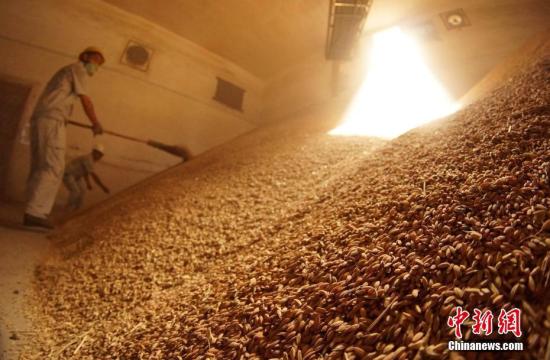China News Service, Beijing, September 29. Rome News: September 29 this year is the first International Food Loss and Waste Publicity Day. The theme is "For mankind and for the earth, stop food loss and waste."
According to the official website of the Food and Agriculture Organization of the United Nations, the part lost from harvest to retail is called food loss, and the part wasted at the retail or consumption level is called food waste.
This distinction is made to hit the root cause of the problem. All parties including farmers, producers, consumers and shopkeepers can help solve this problem.
Data map: The granary is full of rice.
Photo by Wang Haoyang
It is estimated that, globally, about 14% of food is lost between the harvest and the retail stage.
A large amount of food is wasted in the retail and consumption links.
As food is lost or wasted, all resources used to produce these foods, including water, land, energy, labor, and capital, are also lost.
In addition, disposal of lost and wasted food in landfills can trigger greenhouse gas emissions and exacerbate climate change.
FAO believes that the new crown epidemic has sounded a wake-up call for the world, and actions need to be taken around the world to change and rebalance the way food is produced, processed and consumed.
"Innovation, technology and infrastructure are essential to improve the efficiency of the food system and reduce food loss and waste."
FAO stated that small changes in daily habits can have a huge global impact, and recommends that people reduce waste, improve diets, and practice sustainable lifestyles to achieve the goal of "zero hunger".
“In a world where there is enough food to feed everyone, there are still 690 million people who are hungry, and 3 billion people cannot afford a healthy diet.” United Nations Secretary-General Guterres stated in a video speech that food loss and waste is a serious violation Ethics, he urged all countries to set reduction targets consistent with the Sustainable Development Goals and take bold actions to reduce their own food losses and waste.
(Finish)

